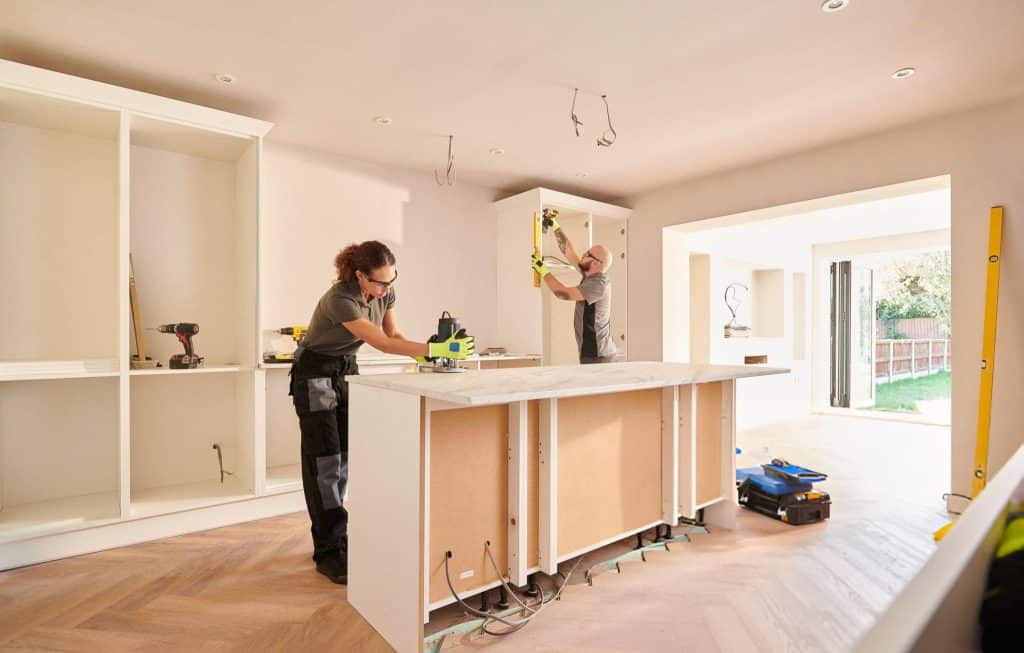If you’re planning a construction or remodeling project, you’ve likely wondered: what does a general contractor do—and do you actually need one? Let’s break it all down. Let’s be real—if you’ve ever planned a home remodel, addition, or new build, chances are you’ve heard the term “general contractor” tossed around a lot. It sounds important (and it is), but most people aren’t 100% sure what that role actually involves.
So, what does a general contractor do? In the simplest terms, they’re the one who turns your Pinterest boards and dream sketches into a finished, fully functioning space—without leaving you drowning in stress, schedules, or subcontractor drama. Whether you’re new to renovations or knee-deep in plans, this guide will help you understand the real value a good GC brings to the table—and how to find one that gets the job done right.
Let’s jump in.
What Is a General Contractor?
You might be wondering, what is a contractor, and how do they fit into your project?
A general contractor is essentially the project manager for any residential or commercial construction job. They’re responsible for:
- Hiring and supervising subcontractors
- Scheduling inspections and permits
- Managing materials and timelines
- Ensuring safety and quality control
In short, they coordinate the chaos—so you don’t have to.
Still wondering, what does a general contractor do? Keep reading.
A Look at General Contractor Work

The type of contractor work you need depends on your project size. Some tackle massive home builds, while others handle small fixes.
Common jobs they oversee include:
- Full remodels and home improvement projects
- Roofing, siding, and window replacement
- Framing, drywall, and painting
- Door installations and finish carpentry
- Scheduling licensed subcontractors (plumbing, electrical, HVAC)
So yes—can a contractor do electrical work or do roofing? Technically, no, unless they’re licensed for those trades. But they do hire and manage the experts who can.
Construction Manager vs General Contractor
The roles sound similar, but they’re not the same.
Construction manager vs general contractor:
- A construction manager is often hired earlier and works on behalf of the client during planning and budgeting.
- A contractor steps in once plans are finalized and takes over execution.
For residential jobs, a full-service contractor is usually your best bet—they’ll cover everything from start to finish.
General Contractor vs. Subcontractor
Here’s a quick breakdown:
General contractor: Oversees the entire project and hires subs.
Subcontractor: Specializes in one area (e.g., electrician, plumber, tiler).
When you hire a general contractor for home repairs or renovations, they manage the whole crew—so you only have to deal with one point of contact.
When to Hire a General Contractor?

Credit: renovco.com
Here’s when it makes sense to bring in a pro:
- You’re doing a full home remodel
- You need multiple trades coordinated
- You’re not familiar with permits or local codes
- You’re building an addition or hiring a contractor home builder
- You want one person managing everything
They’re also great for small jobs that need expert handling, like structural repairs or waterproofing.
General Contractor Cost: What to Expect
Wondering what does a general contractor do and what’s its cost? Here’s a ballpark:
- General contractor fee: Usually 10–20% of the total project cost
- Factors affecting cost: Scope of work, timeline, material prices, labor needs
Some pros charge hourly, while others work on a flat fee or percentage. It’s smart to get a few quotes for comparison.
What Services Can They Provide?
Here’s a typical contractor list of services:
- Full remodeling & restoration
- Structural repair & framing
- Roofing & siding
- Interior finish work
- Plumbing & electrical coordination
- Windows, doors, and flooring
You can also find contractor commercial teams who handle storefronts, offices, or apartment builds.
Want to Become a GC?
If this career path interests you, search for contractor classes near me or connect with a general contractor association to get certified and trained.
And once you really understand what a contractor does, you’ll see just how valuable (and in-demand) this role truly is.
The Bottom Line
Wrapping up, now that you know what a general contractor does, you can see why they’re such a vital part of any successful project. They manage the details, solve problems, and keep things moving—so you can enjoy the final result.
So whether you’re remodeling a bathroom, building a deck, or upgrading your roof, a skilled general contractor is your go-to guide from blueprint to build.
HIRE ONCE. BUILD RIGHT. RELAX ALWAYS.
FAQs
Now, let us take a look at some of the answers to your questions.
1. What does a general contractor actually do?
They manage the entire project—hiring subs, scheduling work, and ensuring everything runs smoothly.
2. How is a contractor different from a subcontractor?
A contractor oversees the project; a subcontractor handles specific tasks like plumbing or electrical.
3. What’s the average contractor fee?
Typically 10–20% of your total project cost.
4. When should I hire a general contractor?
Hire one for full remodels, multi-trade jobs, or when permits and inspections are involved.
5. Can contractors do electrical or roofing work?
Only if licensed—but they can hire and manage the right pros for you.




